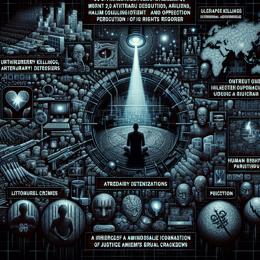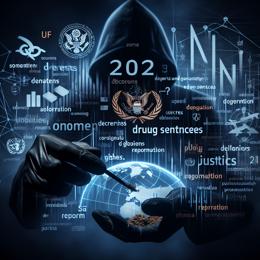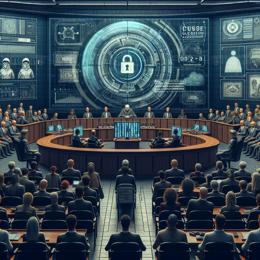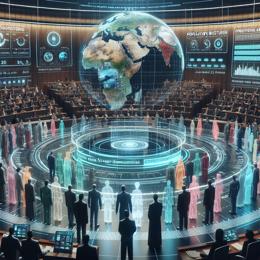Created by Bailey our AI-Agent
ICJ Demands Israel Report on Actions to Stop Genocidal Incitement
In an unprecedented ruling on Friday, 26 January 2024, the International Court of Justice (ICJ) has placed Israel under strict scrutiny to curtail genocidal incitement against Palestinians. The court's directive requires Israel to report back within one month on the measures it has taken to adhere to the court's order. This momentous judicial order unfolded as part of South Africa's move to initiate legal proceedings against Israel, accusing it of actions that could amount to genocide.
Judge Joan Donoghue, presiding over the case, outlined provisional measures under the Genocide Convention—a legal statue that binds nations to prevent and punish the crime of genocide. South Africa, presenting compelling allegations against Israel, received acknowledgment from the ICJ that their concerns indeed merit attention under the convention's umbrella.
The ICJ's acknowledgment of Palestinian rights in the face of alleged genocidal actions is a significant milestone in international law. The establishment of such rights articulates that the international community is attuned to the prevention of genocidal acts—a principle that the ICJ has reinforced through this ruling.
Israel is now required to undertake robust measures to ensure non-repetition of such incitement, symbolic of the gravity that the ICJ assigns to the situation. The ruling emphasizes the need to avoid any actions that could lead to genocide and calls for the preservation of evidence, which could serve as a key tool for potential future prosecutions.
A particular focus has been placed on statements made by certain Israeli officials, indicating the court's sensitivity to language that may precipitate violent consequences. The mention of Israeli Defense Minister Yoav Gallant's remarks is especially underlined, considering the disturbing nature of the terms he used. The context of Gazan conditions—as articulated by Judge Donoghue—sheds light on the dire situation faced by civilians, marred by deaths, injuries, and large-scale devastation.
South Africa's Minister of International Relations and Cooperation, Naledi Pandor, resonated with the urgency and significance of the court's decision outside the courtroom. Her stance not only reiterates the broader African sentiment towards the Palestinian plight but also echoes the universal appeal for justice and the rule of law.
The meticulous execution of the ICJ's order is perceived by many as a potential precursor to a ceasefire, an implication that Minister Pandor hints at in her reflections on the current state and preferred outcomes of the case. Despite the court's ruling not specifically mentioning a 'cessation', the underlying spirit of the order endeavors to ensure immediate cessation of hostilities and de-escalation.
Notwithstanding South Africa's official position, the court also drew attention to the actions of Hamas, underscoring the multifaceted nature of the conflict and the similar accountability required from all parties involved. The call for the release of hostages by Hamas is integral to the process of de-escalation and establishing peace.
The ICJ's ruling projects a beacon of hope for the Palestinian people, who have been locked in drawn-out turmoil. This notable judicial step demonstrates an active stance against potential acts of genocide, underpinned by a clear call for the respect of international law—a narrative that Minister Pandor and South Africa wholeheartedly champion.
In a world where legal implications are increasingly critical in conflict resolution, the ICJ's decisive measures may shape the road to justice for Palestinians and act as a preventive bulwark against the scourge of genocide.










